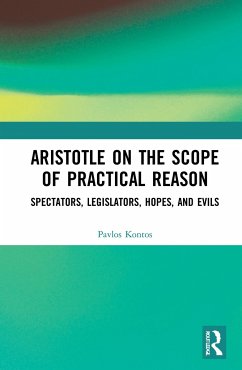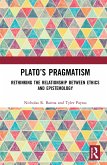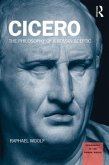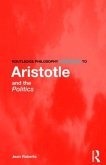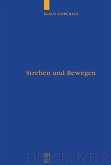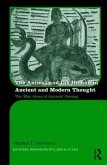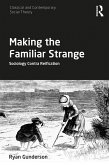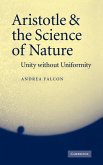This book offers a new account of Aristotle's practical philosophy. Pavlos Kontos argues that Aristotle does not restrict practical reason to its action-guiding and motivational role; rather, practical reason remains practical in the full sense of the term even when its exercise does not immediately concern the guidance of our present actions. To elucidate why this wider scope of practical reason is important, Kontos brings into the foreground five protagonists that have long been overlooked: (a) spectators or judges who make non-motivational judgments about practical matters that do not interact with their present deliberations and actions; (b) legislators who exercise practical reason to establish constitutions and laws; (c) hopes as an active engagement with moral luck and its impact on our individual lives; (d) prayers as legislators' way to deal with the moral luck hovering around the birth of constitutions and the prospect of a utopia; and (e) people who are outsiders or marginal cases of the responsibility community because they are totally deprived of practical reason. Building on a wide range of interpretations of Aristotle's practical philosophy (from the ancient commentators to contemporary analytic and continental philosophers), Kontos offers new insights about Aristotle's philosophical contribution to the current debates about radical evil, moral luck, hope, utopia, internalism and externalism, and the philosophy of law. Aristotle on the Scope of Practical Reason will appeal to researchers and advanced students interested in Aristotle's ethics, ancient philosophy, and the history of practical philosophy.
Hinweis: Dieser Artikel kann nur an eine deutsche Lieferadresse ausgeliefert werden.
Hinweis: Dieser Artikel kann nur an eine deutsche Lieferadresse ausgeliefert werden.
"Kontos's book is to be commended on several grounds. First, the volume is refreshing for the way in which the author enters into a dialogue with several different philosophical traditions ... Second, Kontos shows an impressive command of other ancient authors who are often left out of the ancient philosophy canon but are nonetheless at times crucial for our understanding of Aristotle's ethical and political thought. I am thinking particularly of Isocrates ... The breadth of the author's scholarship is impressive, and reminds the reader of German scholars of the 19th and early-20th centuries ... A book that will be read, mulled over, and undoubtedly intensely debated for years and years to come."
Giulio Di Basilio, International Journal of Philosophical Studies
"Let me conclude, therefore, with a note of warm approval. In drawing so extensively on Aristotle's political thought in this monograph to illuminate aspects of the treatment of practical reason in the Nicomachean and Eudemian Ethics, Pavlos Kontos has done a great service. I hope and pray that scholars of Aristotle who write about these topics in the future will adopt the same enthusiasm for the Politics and the Rhetoric as they tend to show already for texts such as the De Anima and the Physics. In this book, they will find a model worthy of emulation."
Dhananjay Jagannathan, Mind
"Commentators on Aristotle's practical philosophy rarely find new topics ... But Pavlos Kontos's book does find new and untrodden territory, and enlarges the scope of our understanding of Aristotle's practical philosophy ... Each chapter can be read as an independent project, and put together they broaden and deepen significantly our understanding of Aristotle's practical philosophy. It is a most welcome addition to the literature on Aristotle's practical philosophy, and will benefit both students of Aristotle and those of contemporary practical philosophy."
Wei Liu, Bryn Mawr Classical Review
"Pavlos Kontos' book is an important addition to contemporary scholarship on Aristotle's ethical and political thought. Covering topics very seldom dealt with in such detail, Kontos provides a fresh perspective so sorely needed to broaden our understanding of Aristotelian perspectives on moral and political life. Kontos' book promises to become required reading for all those interested in Aristotle's ethics and politics and their contemporary significance."
Sophia M. Connell, Birkbeck College, University of London, UK
"Kontos argues convincingly that for Aristotle we are not only agents but observers and students of ethical life, filled with hopes, prayers, and general principles derived from the study of political systems. His wide reading and detailed textual analysis illuminate many aspects of Aristotle's practical philosophy that often receive little attention or entirely escape our notice."
Richard Kraut, Northwestern University, USA
"A genuinely fresh re-interpretation of Aristotelian practical philosophy, guided by a resolute attention to problems and texts important for Aristotle but generally ignored in recent scholarship. Wide-ranging and ambitious, and drawing upon work from diverse philosophical schools, Kontos both points out how rich our practical intelligence actually is, and argues for the equal richness of Aristotle's vision."
Michael Pakaluk, The Catholic University of America, USA
"In his excellent study Pavlos Kontos leads his readers through almost unexplored territory of Aristotle's practical philosophy. He makes a strong case for the idea that Aristotle's practical reason is not only involved in action and motivation, but is required for a wide range of intellectual operations dealing with the realm of human affairs. This book will open up new avenues of discussion among both Aristotelian scholars and Neo-Aristotelian philosophers."
Christof Rapp, Ludwig-Maximilians-Universität München, Germany
Giulio Di Basilio, International Journal of Philosophical Studies
"Let me conclude, therefore, with a note of warm approval. In drawing so extensively on Aristotle's political thought in this monograph to illuminate aspects of the treatment of practical reason in the Nicomachean and Eudemian Ethics, Pavlos Kontos has done a great service. I hope and pray that scholars of Aristotle who write about these topics in the future will adopt the same enthusiasm for the Politics and the Rhetoric as they tend to show already for texts such as the De Anima and the Physics. In this book, they will find a model worthy of emulation."
Dhananjay Jagannathan, Mind
"Commentators on Aristotle's practical philosophy rarely find new topics ... But Pavlos Kontos's book does find new and untrodden territory, and enlarges the scope of our understanding of Aristotle's practical philosophy ... Each chapter can be read as an independent project, and put together they broaden and deepen significantly our understanding of Aristotle's practical philosophy. It is a most welcome addition to the literature on Aristotle's practical philosophy, and will benefit both students of Aristotle and those of contemporary practical philosophy."
Wei Liu, Bryn Mawr Classical Review
"Pavlos Kontos' book is an important addition to contemporary scholarship on Aristotle's ethical and political thought. Covering topics very seldom dealt with in such detail, Kontos provides a fresh perspective so sorely needed to broaden our understanding of Aristotelian perspectives on moral and political life. Kontos' book promises to become required reading for all those interested in Aristotle's ethics and politics and their contemporary significance."
Sophia M. Connell, Birkbeck College, University of London, UK
"Kontos argues convincingly that for Aristotle we are not only agents but observers and students of ethical life, filled with hopes, prayers, and general principles derived from the study of political systems. His wide reading and detailed textual analysis illuminate many aspects of Aristotle's practical philosophy that often receive little attention or entirely escape our notice."
Richard Kraut, Northwestern University, USA
"A genuinely fresh re-interpretation of Aristotelian practical philosophy, guided by a resolute attention to problems and texts important for Aristotle but generally ignored in recent scholarship. Wide-ranging and ambitious, and drawing upon work from diverse philosophical schools, Kontos both points out how rich our practical intelligence actually is, and argues for the equal richness of Aristotle's vision."
Michael Pakaluk, The Catholic University of America, USA
"In his excellent study Pavlos Kontos leads his readers through almost unexplored territory of Aristotle's practical philosophy. He makes a strong case for the idea that Aristotle's practical reason is not only involved in action and motivation, but is required for a wide range of intellectual operations dealing with the realm of human affairs. This book will open up new avenues of discussion among both Aristotelian scholars and Neo-Aristotelian philosophers."
Christof Rapp, Ludwig-Maximilians-Universität München, Germany

